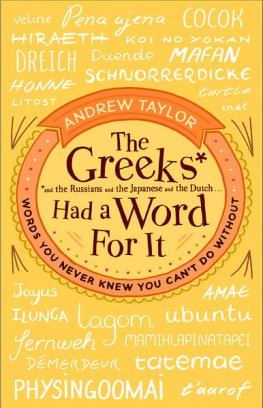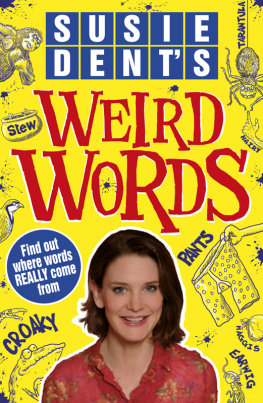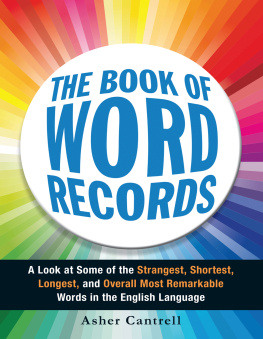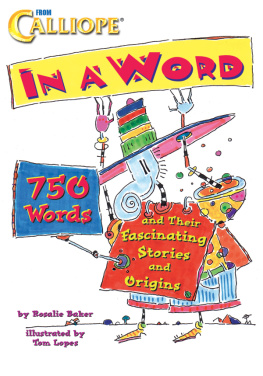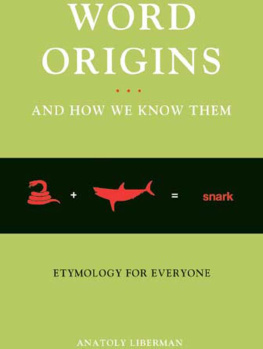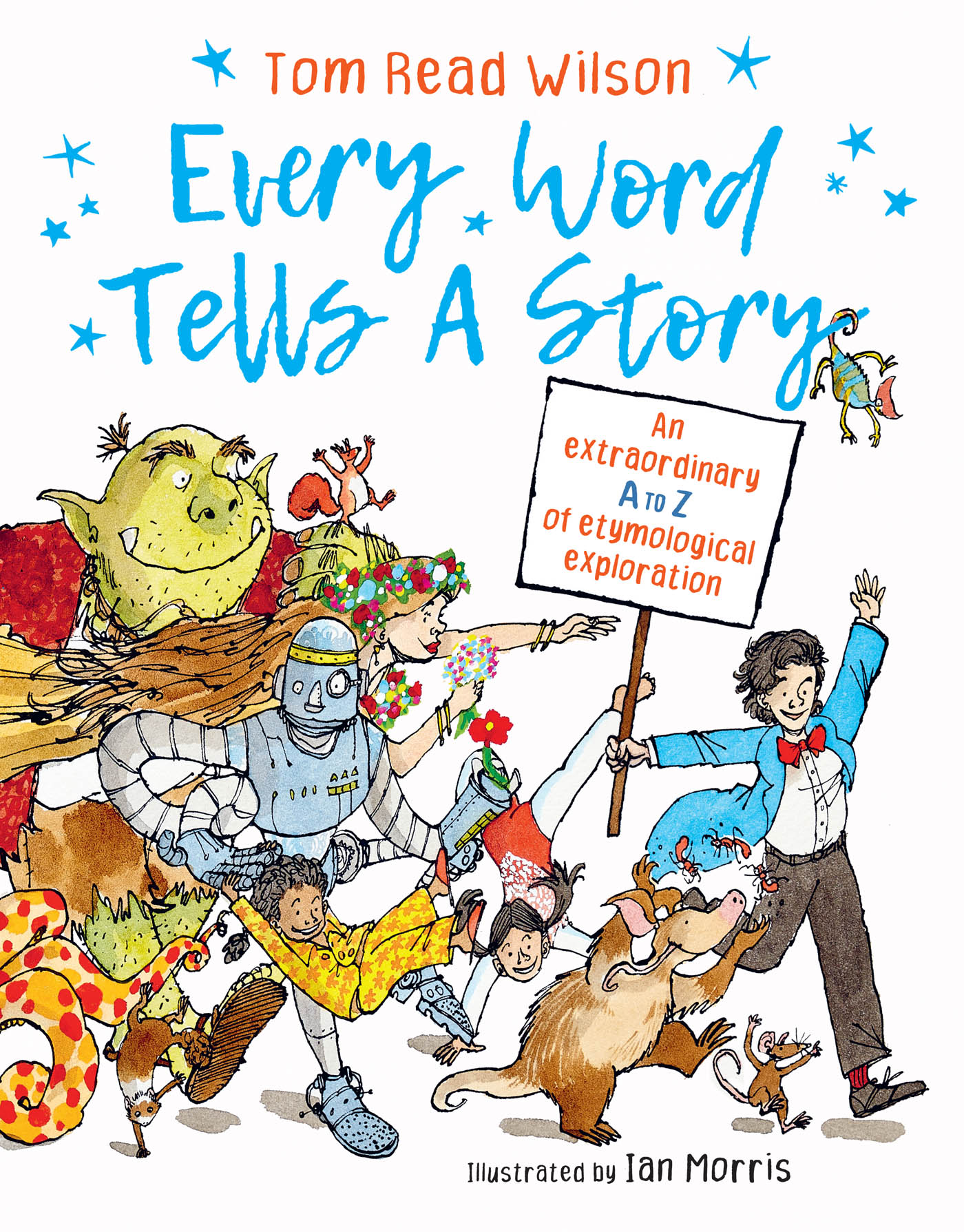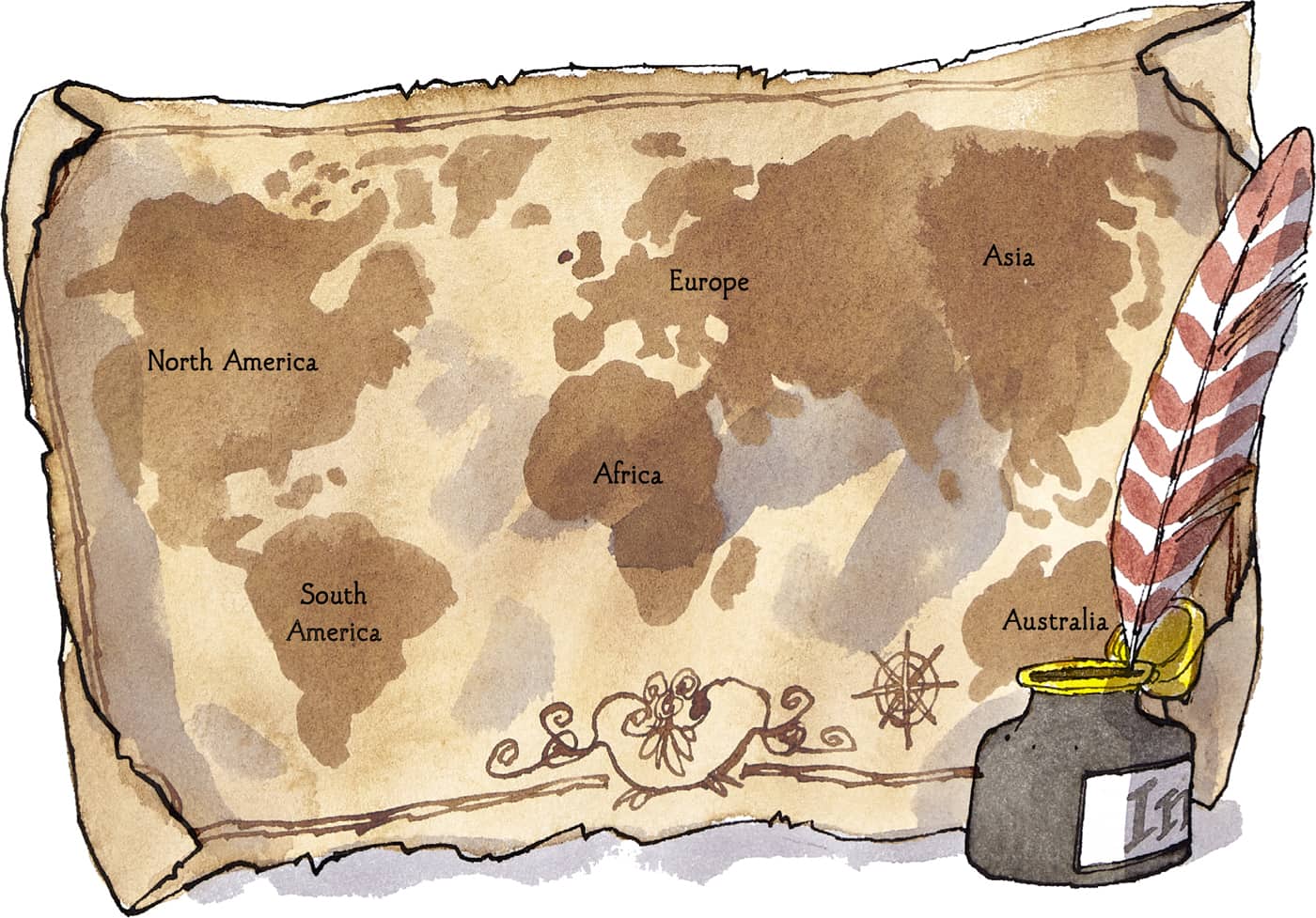Mama. Wow. Cake. Bug Ball. These were my nephews first words. These words, I believe, tell you everything that is most important about him to this day. Mama: his favourite person; wow: the way he reacts to our dazzling world; cake: his ceaseless delight in all kinds of bakes; and bug ball: his love of music, since these words come from the song The Ugly Bug Ball. I sang this to him so often that he referred to me as Bug Ball long before he started to call me Uncle Tom.
Who knows, you might even become part of a words story. You might invent something and give it your own name. You might say something in an interesting way and all your friends begin to say it that way, too. You might find a favorite expression too long and clunky and come up with a shortened version. Or you might shrink an existing word.
Our language has always been shaped by individual tastes and personalities, as people find new ways of expressing ideas and using words. In this book I reveal a selection of my favorite word stories, but first...
For each letter of the alphabet, I have picked out four words. I start things off with a star word poem. The poem is accompanied by a handy table that summarizes the words meaning and origins along with some other word facts that are related to the star word in all kinds of interesting ways. On turning the page, youll find three more words whose captivating stories have caught my imagination.
The four featured words for each letter of the alphabet, along with the related words, are picked out in purple the first time they are used.
The words source (from another language or a name, for example) is picked out in red .
The meaning of the source word is picked out in green .
Words in the English language have sometimes taken a journey from all over the world to reach our tongues.
Glossary
Throughout the book, youll come across these specialized terms that are used by all lovers of words. These words are picked out in bold the first time they are used.
AbbreviationA shortened form of a word.
AcronymThe first letters of a set of words, put together in such a way that they can be pronounced as an ordinary word: FOMO is fear of missing out.
ClippingThe part of a word remaining when some of it has been removed.
CoiningA new, invented word.
DefinitionThe meaning of a word.
DialectA particular way of speaking or using words that belongs to a specific region or group of people.
EponymA word based on the name of a particular personreal, fictional, or mythological.
EtymologyThe study of the origins of words.
InitialismIf the letters from a set of words are put together and each letter must be separately pronounced, then it is an initialism. Most initialisms are formed using the first letters of words, such as FYI for for your information. But there are many exceptions, such as TV, which takes its V from the middle of television.
LexicalAnything to do with the words or vocabulary of a language could be described as lexical.
NicknameA familiar and often funny word or phrase used to describe a particular person or thing.
OnomatopoeiaOnomatopoeic words sound like the thing or action that they are used to name. Cuckoo and plop are both examples.
PortmanteauA word that blends the sounds and also combines the meanings of two others, for example brunch, which comes from breakfast and lunch.
RootThe part of a word that can be traced back to an older language.
SynonymA word or phrase that means exactly or nearly the same as another word or phrase; for example large is a synonym of big.
VernacularEveryday language.
Aardvark
Aardvarks , like pigs, have a lovely, long snout
For sniffing where termites and ants are about.
They snuffle at nighttime for all they are worth
And use their strong claws for digging the earth.
In Dutch Afrikaans we are given a clue
By splitting their name from one into two:
Aard is the earth and piggy is vark .
For only an earth pig eats ants in the dark!
Aardvark: A nocturnal badger-sized burrowing mammal found in Africa
Word origin: Afrikaansa language similar to Dutch spoken in some parts of southern Africa
Meaning in source language: Earth pig
Etymologically speaking
The Old English word for nose is snowte . This is where snout comes from. It might also explain why so many words to do with noses start with the letters sn. Snort, snore, snivel, sniffle, snuffle and snot are just some examples.
Whats in a name?
The guinea pig is named after Guinea in West Africa, probably by mistake since it comes from South America and is a rodent, not a pig!
Ambulance
Wounded French soldiers in the 18th century would be treated in a hpital ambulant or walking hospital . Pulled by horses, these really did go at a walking pace. When French and British soldiers fought side by side in the Crimean War, the word entered our language as ambulance . Luckily, they now go a lot faster. Unlike the contraption that you were probably pushed along in when you were just a babe. A strollerwhich British people call a prammakes it easy for an adult to ambulate (or walk) with a baby in tow!
Anemone
Anemones are beautiful flowers that have wide, plate-like petals and come in oodles and oodles of cheerful colors. They love woodlands and the shade: they typically thrive in cool and breezy spots. No wonder their attractive name means daughter of the wind in Greek. They make their home in the places many flowers try their best to avoid.


